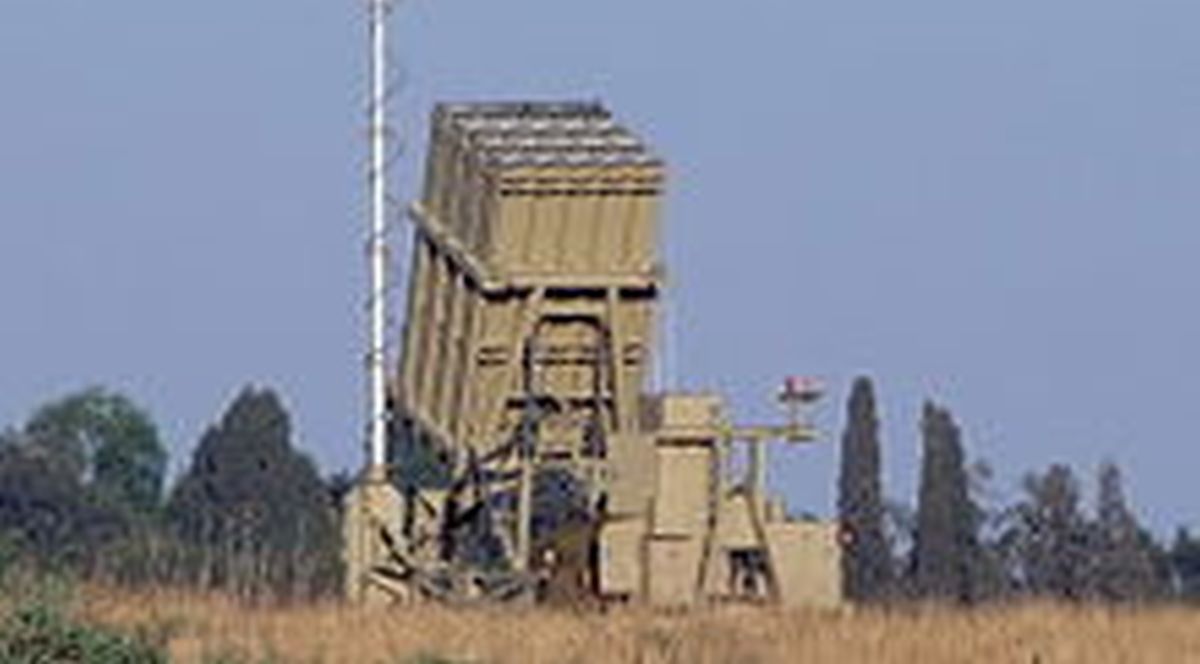An earlier draft of the statement called on Israel to provide an even greater level of military assistance to the Gaza Strip.
 Geneva, July 6 – The United Nations Human Rights Council followed up its endorsement of the Davis Commission’s report on the 2014 Gaza conflict by telling Israel today that it must provide the Gaza Strip with the Iron Dome missile defense system to protect the territory from rockets launched within the territory that fail to reach Israel, putting Gaza residents at risk.
Geneva, July 6 – The United Nations Human Rights Council followed up its endorsement of the Davis Commission’s report on the 2014 Gaza conflict by telling Israel today that it must provide the Gaza Strip with the Iron Dome missile defense system to protect the territory from rockets launched within the territory that fail to reach Israel, putting Gaza residents at risk.
Iron Dome helped Israel limit civilian casualties from Hamas’s missiles and long-range mortars, mitigating the urgency of the ground offensive and allowing the IDF to pursue its targets with the necessary deliberation. Saying that it was discriminatory to deprive Gazan civilians of the same protection from militants’ rockets, the Human Rights Council demanded that Israel supply the Gaza Strip at once with the quantity of Iron Dome batteries necessary to provide that protection, to train Palestinian personnel in the deployment and operation of those batteries, and to supply, at no charge, all the projectiles and spare parts to keep the system functioning.
“The investigation of Israel’s conduct in the 2014 conflict found blatant disregard for Palestinian civilian welfare,” read the Council’s statement. “That disregard of course included taking no measures whatsoever to shield the Gaza Strip civilian population from rockets fired by local militants. As the possessor of technology that enables such measures to be taken, Israel bears responsibility for not supplying that technology to the embattled Gazans.”
An earlier draft of the statement called on Israel to provide an even greater level of military assistance to the Gaza Strip. In its original version, drafted by Saudi Arabia, the statement called on Israel to hand over fighter aircraft, naval vessels, and armaments that would enable Gazan fighters to attack and eliminate the weapons Israel was using against targets in the territory, such as F-15s, F-16s, and drones. However, several other Council members warned they would be forced to vote against the statement in its original form, as it carried the implication that those countries, as well, might be expected to supply military foes with superior technology.
“While our concern for the beleaguered Palestinians of Gaza guides our actions on this Council, a sense of proportion is still necessary to bring to that work,” explained UK delegate Sir Wharpt Morrel-Compiss. “We cannot expect that our forces in, for example, Afghanistan, would be subjected to the same standards, and have to provide Taliban fighters with comparable weaponry to that which we deploy. Our friends on the Council assured us there is no need to worry, that only Israel would be subjected to this sort of demand, but in the end Her Majesty’s government could not take the risk that its fighting men might be open to such risks. Such risks are only for Israel to face.”




